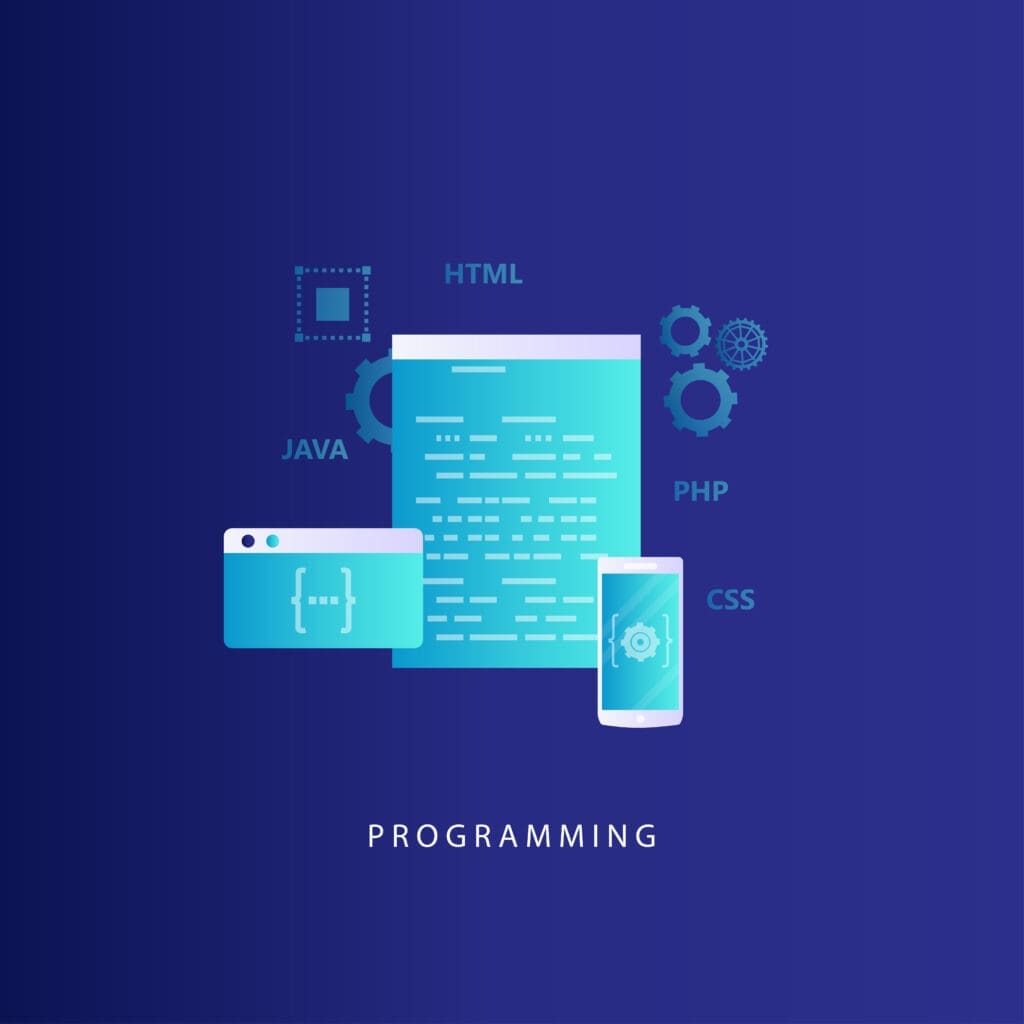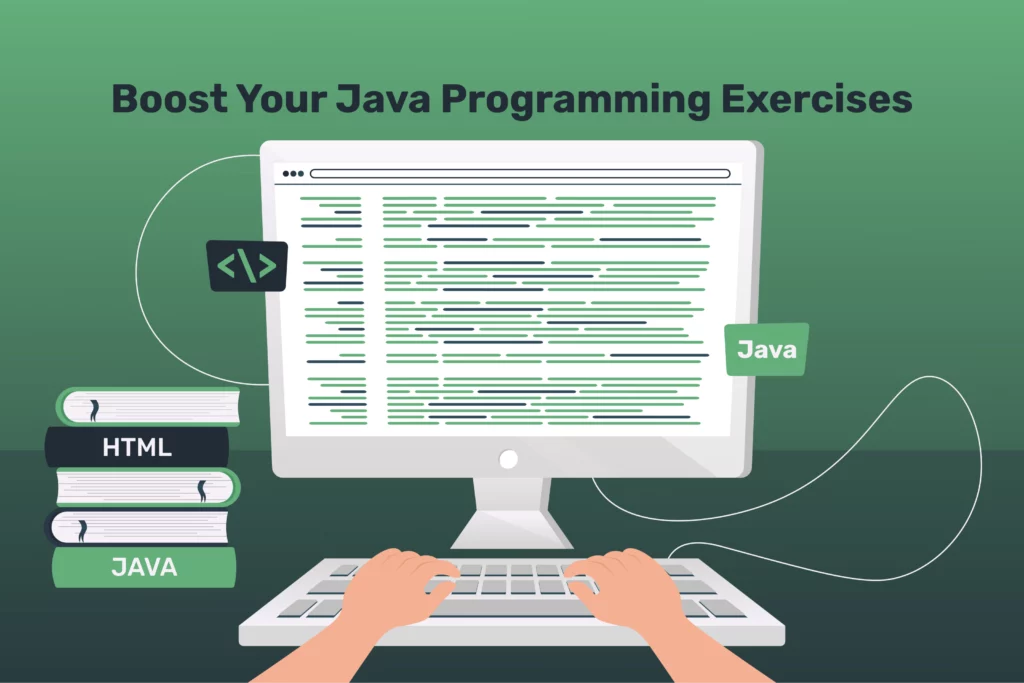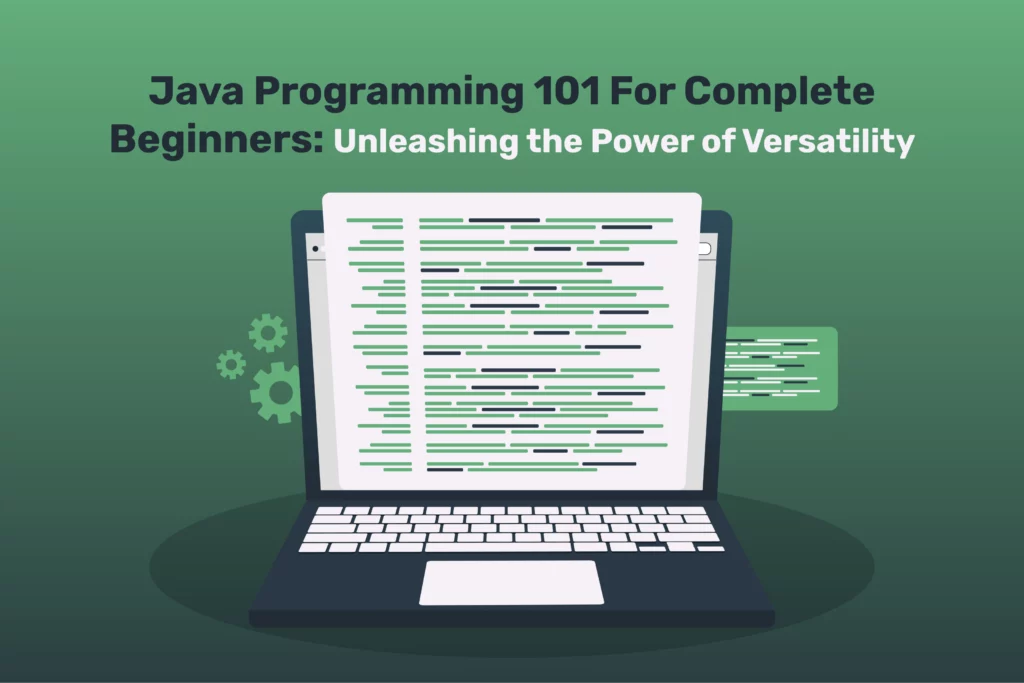Taking on Java’s complexities can feel overwhelming, particularly when attempting to weave in functional programming in Java. From personal experience, while navigating this challenge, we’ve discovered that getting to grips with functional programming is the golden ticket to simplifying and enhancing our approach to coding in Java.
This blog aims to shed light on how to apply these principles to your own Java codes—injecting an uplift in readability and efficiency. So come on then, let’s start this transformative journey together—improved coding lies just around the corner!
What Is Functional Programming in Java?
Functional programming (FP) in Java is a programming paradigm that emphasises using functions as first-class citizens and immutable data to write declarative and concise code. It’s not a completely new way of programming in Java, but rather a set of techniques and concepts that became more readily available with the introduction of features like lambdas and streams in Java 8.
Functional programming in Java involves utilising mathematical functions and programming techniques that emphasise immutability and pure functions while avoiding side effects.
Lambda Calculus
Lambda calculus is a part of math that helps us understand what happens when we compute things. Alonzo Church built it in the 1930s. It works as a system in the world of math logic.

Java developers got to use lambda calculus with Java 8’s start. Now, both functional programming and lambda calculus are becoming more common for programmers to use.
Categorisation of Programming Paradigms
The world of programming is vast and diverse, with many paradigms under which programs can be written and executed. Let’s take a detailed look at the key categorisation of programming paradigms, particularly those related to functional programming in Java.
| Paradigm | Description |
|---|---|
| Declarative Programming | This paradigm focuses on what the program should accomplish without specifying how it should do it. Functional programming is a subset of this paradigm. |
| Functional Programming | It organises software design around data or objects rather than functions and logic. |
| Procedural Programming | This paradigm uses procedures (also known as routines or sub-routines) to determine the computing tasks within each procedure. |
| Object-Oriented Programming | In this paradigm, a sequence of commands is used to achieve the desired result. The state of the system changes with each command. |
| Imperative Programming | In this paradigm, a sequence of commands are used to achieve the desired result. The state of the system changes with each command. |
Each of these paradigms offers its own unique approach and style. Functional programming in Java utilises the principles of pure function, immutable state, and assignment-less programming to manage and manipulate data effectively, enhancing code readability and reducing complexity.
Fundamental Principles and Concepts
Functional programming in Java is built on core principles. One key idea is using pure functions; these are bits of code that always give the same result with the same input. They don’t change or rely on hidden information, which makes them predictable and easy to test.
Another big concept is the immutable state. This precisely means data doesn’t change once it’s been set up. It sounds tricky, but it actually helps avoid bugs. For instance, if some other part of your program tries to fiddle with data, it shouldn’t touch it. Sorry, no dice!
Assignment programming goes hand in hand with an immutable state. Variables aren’t reassigned after their first assignment. This reduces errors because variables’ values stay constant throughout a function.
We have referential transparency—a fancy phrase for a simple idea: you can swap out an expression with its output value without changing how things work.
There are also method references and high-order functions—two more building blocks of functional programming in Java. With method references, you can pass methods just like numbers or strings. High-order functions take other functions as inputs or return them as outputs, leading to flexible and reusable code.
All these concepts may feel strange at first blush if you’re used to traditional coding styles. But once mastered, they’ll help create cleaner codes that are easier to read and debug.
Functional Programming Techniques in Java

While primarily object-oriented, Java offers powerful features that enable developers to incorporate functional programming techniques. These techniques leverage functions as first-class citizens and immutable data to create concise, maintainable, and testable code. Here are some key techniques to explore:
1. Higher-order Functions
These functions operate on other functions, allowing you to treat functions as arguments and return values. This empowers techniques like function composition and currying.
Function Composition
In Java, function composition forms complex functions from simple ones. This is a key part of programming techniques in Java. You take small parts and put them together to make something bigger. It’s like building with blocks.
In computer science, this way of doing things helps us create more intricate solutions piece by piece. Thanks to Java 8, we now have functional interfaces and lambda expressions to help us do this even better. They let functions be first-class citizens in our code so we can chain or compose them as needed for our work.
Currying
Currying is a neat trick used in functional programming which transform a function with multiple arguments into a sequence of functions with a single argument. It changes how a function with many parts works. Instead of using all the parts at once, it uses them one by one.
Sadly, Java does not make currying easy like some other languages do. But don’t worry! We can use tools such as lambdas or inner classes to make it work for us.
With currying, we can use only some parts of our functions and leave the rest for later use. This makes our code easier to read and keep clean because our function signatures are less complicated.
2. Monads
Monads are key in functional programming in Java. They act like a box; we can put stuff inside this box and then transform the stuff using rules without touching the stuff directly. Monads manage side effects, shielding us from unwanted changes.
In Java development, we often use an Optional monad. It’s a special monad that helps control data flow in our code and makes it neater and easier to understand. This keeps errors at bay as well.
3. Recursion
In Java, recursion is a handy tool. It’s like having a functioning chat with itself. This back-and-forth occurs when functions call themselves with modified arguments until a base case is reached. While not always the most efficient, it can elegantly solve problems naturally expressed as recursive in nature.
Now, you might wonder if this goes on forever. Well, it doesn’t. There are rules set up to stop the endless loop. Just think about adding numbers in a Fibonacci series or using recursive algorithms to solve problems piece by piece—that’s recursion at work.
Beyond just chatting with themselves, these savvy functions can also recall past talks. They use memoisation to save and fetch old results from their memory stash.
An interesting fact is that recursion draws from mathematical induction concepts used to prove things about natural numbers. So, while we code away in Java, we’re also touching upon some deep maths stuff without even knowing it. Cool, isn’t it? Recursion indeed packs quite a punch in functional programming.
Benefits of Functional Programming in Java

Functional programming in Java offers several benefits, including improved code readability, enhanced code reusability, and reduced complexity. Here is a breakdown of each:
Improved Code Readability
The most important benefit of functional programming in Java is improved code readability. By following functional programming principles and techniques, developers can write code that is easier to understand and maintain.
One way this is achieved is through the use of lambda expressions, which allow for more concise and expressive code. With lambda expressions, complex operations can be written as simple functions, making the code more readable and easier to follow.
Furthermore, transitioning to functional programming can simplify code complexity by focusing on composing smaller functions together instead of dealing with large blocks of imperative statements.
Enhanced Code Reusability
Enhanced code reusability is one of the key benefits of using functional programming in Java. This means that once we write a piece of code, we can easily reuse it in different parts of our program without having to rewrite it from scratch. This saves time and effort; we don’t have to duplicate code or make changes in multiple places.
Functional programming promotes modularity, which makes it easier to break down complex programs into smaller, reusable functions. With enhanced code reusability, we can maintain and update our code more efficiently, leading to better software development practices overall.
Reduced Complexity
Reduced complexity is another key benefit of functional programming in Java. Using functional programming techniques, such as function composition and currying, makes code simpler and easier to understand.
Rather than dealing with intricate loops and mutable states, functional programming focuses on isolated operations that are independent of each other. This clarity and simplicity make it easier for developers to reason about their code, improving maintainability and efficiency. With functional programming in Java, you can simplify complex operations while keeping your logic concise and understandable.
Is Java a Suitable Fit for Functional Programming?
Java is a suitable fit for functional programming due to its incorporation of functional programming features and concepts. However, it may not be as expressive as purely functional programming languages like Haskell.
How Java Incorporates Functional Programming
Java incorporates functional programming through the introduction of functional interfaces, lambda expressions, and streams in Java 8 and later versions. These features allow developers to write code in a more declarative and expressive style, focusing on what needs to be done rather than how.
Functional programming in Java promotes the use of immutable objects and avoids shared mutable states, making it easier to write concurrent and parallel code. Additionally, Java’s support for pure functions ensures output consistency and minimises side effects. By providing these key concepts and features aligned with the functional programming paradigm, Java offers a suitable fit for functional programming.
Comparison to Purely Functional Programming Languages
Functional programming languages, like Scala and JavaScript, offer more robust support for functional programming principles than multi-paradigm languages, like Java. Let’s delve into comparing Java with purely functional programming languages, highlighting some key differences and similarities.
| Programming Language | Functional Programming Support | Key Features |
|---|---|---|
| Java | Partial | Java incorporates functional programming through features like lambda expressions and functional interfaces, which were introduced in Java 8. The primary advantage is the use of pure functions and immutable states. |
| Scala | Full | Scala is a functional programming language that also incorporates object-oriented principles. It provides a more complete functional programming experience supporting higher-order functions, pattern matching, and other advanced concepts. |
| JavaScript | Full | JavaScript, although known as a multi-paradigm language, is also fully capable of supporting functional programming. It facilitates first-class functions, closures, and other functional programming techniques. |
| Python | Partial | Python is a multi-paradigm language that supports functional programming to a certain extent. While it does allow functions as objects and higher-order functions, it does not fully support pure functional programming principles. |
| PHP | Partial | PHP is primarily a procedural language with some support for functional programming. It does support some functional programming concepts like higher-order functions, but it lacks other key features like immutability and pure functions. |
| C++ | Partial | C++ is another multi-paradigm language with partial support for functional programming, offering capabilities for lambda functions and function objects but not immutability or pure functions. |
The comparison demonstrates that while Java does offer some functional programming capabilities, it does not offer the full range of features as seen in purely functional programming languages. However, the combination of object-oriented and functional programming features in Java makes it a versatile choice for developers.
Conclusion
Functional programming in Java provides developers with a powerful approach to writing code. By incorporating functional programming techniques, such as function composition and monads, Java developers can enhance the readability, reusability, and maintainability of their programs.
Although Java is not purely functional like Haskell, it offers the flexibility to apply functional concepts while leveraging its existing object-oriented capabilities. Embracing functional programming in Java can empower developers to write more efficient and concise code that meets the demands of modern software development.
FAQs
1. What is functional programming in Java?
Functional programming in Java is a programming paradigm focusing on writing code by composing pure functions and avoiding mutating states or using side effects.
2. How is functional programming different from procedural programming?
In procedural programming, the focus is on executing a series of statements to achieve a desired outcome, while in functional programming, the emphasis is on transforming data through immutable functions.
3. Can I use functional programming in all versions of Java?
Yes, you can use functional programming concepts in all versions of Java, starting from Java 8 with the introduction of lambda expressions and functional interfaces.
4. What are the advantages of using functional programming in Java?
Using functional programming in Java can lead to more modular and reusable code, better readability, easier debugging, and improved parallelism and performance optimisations.
5. Are there any drawbacks or limitations to using functional programming in Java?
Functional programming in Java may require a shift in mindset for developers who are used to imperative or object-oriented paradigms. It also requires an understanding of higher-order functions and immutability concepts, which could present a learning curve for some programmers.


